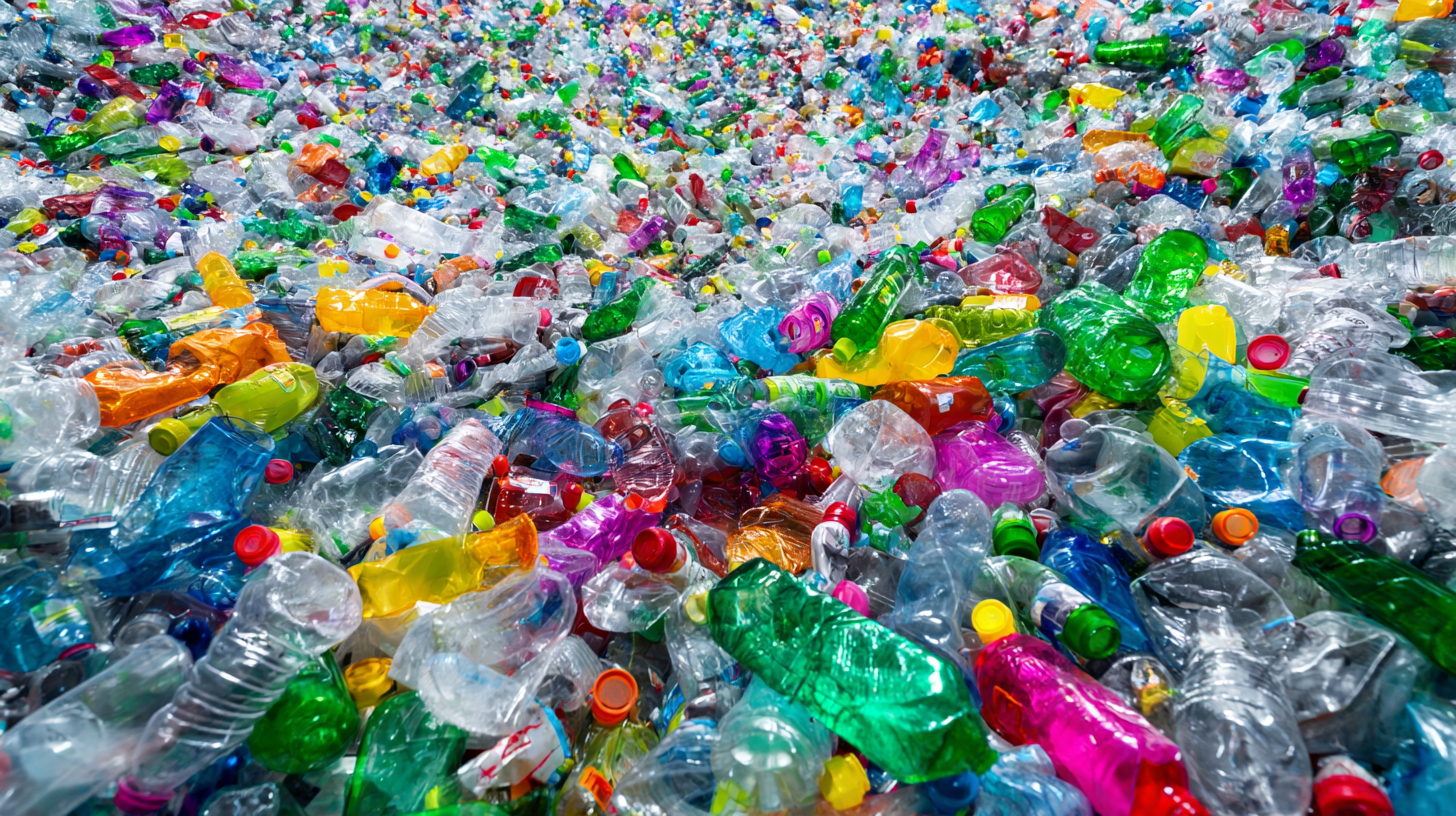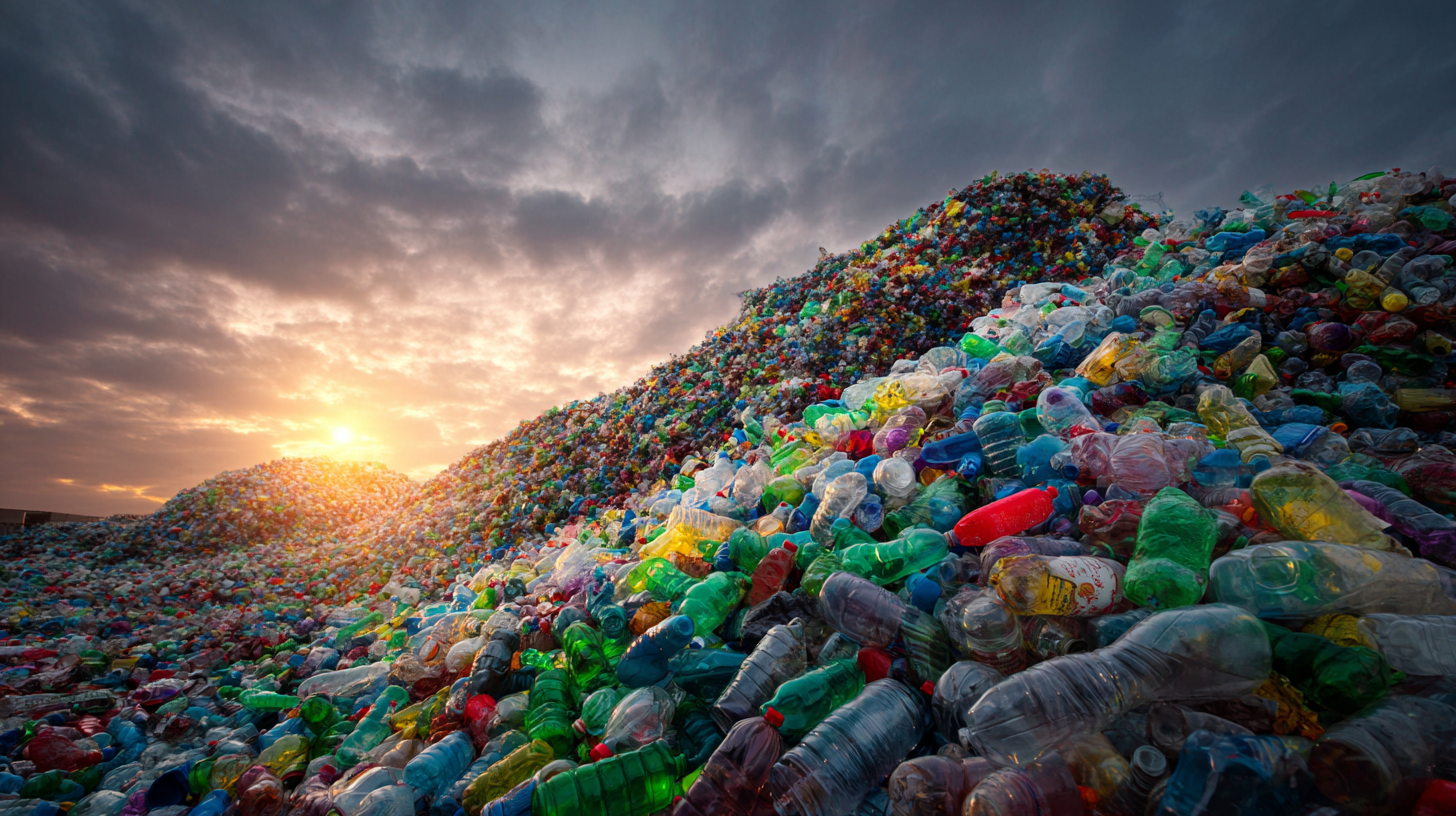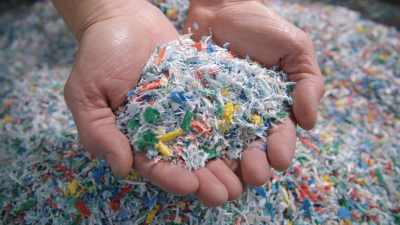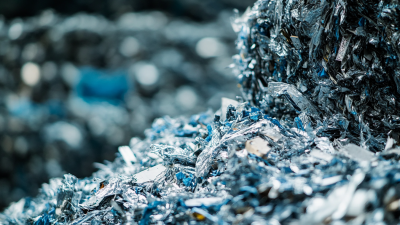As the global demand for sustainable practices escalates, industries are increasingly turning to innovative solutions to manage waste. One such solution is the Plastic Recycling Grinder, an essential tool that not only facilitates the recycling process but also aids in converting plastic waste into valuable resources. According to a report by Grand View Research, the global plastic recycling market is projected to reach $67.5 billion by 2027, driven by heightened awareness of environmental sustainability and the urgent need to reduce plastic waste output. The implementation of plastic recycling grinders significantly enhances the efficiency of recycling operations, allowing businesses to recover up to 90% of used plastic materials. By transforming discarded plastics into reusable raw materials, these grinders are pivotal in closing the loop of plastic production and consumption, highlighting their critical role in the circular economy.

 Plastic recycling grinders play a pivotal role in facilitating a circular economy by transforming waste into valuable resources. By breaking down plastic materials into manageable sizes, these grinders enhance the recycling process, making it easier for companies to repurpose plastics into new products. This innovation not only reduces the amount of plastic waste in landfills but also lessens the demand for virgin materials, contributing to a more sustainable future.
Plastic recycling grinders play a pivotal role in facilitating a circular economy by transforming waste into valuable resources. By breaking down plastic materials into manageable sizes, these grinders enhance the recycling process, making it easier for companies to repurpose plastics into new products. This innovation not only reduces the amount of plastic waste in landfills but also lessens the demand for virgin materials, contributing to a more sustainable future.
Tip: When considering implementing plastic recycling grinders in your operations, it's essential to choose machines that suit the specific type of plastic you're dealing with. Different plastics require different grinding mechanisms for optimal efficiency.
Moreover, recycling grinders can help businesses comply with stringent environmental regulations. By investing in these technologies, companies can improve their sustainability credentials and appeal to eco-conscious consumers. This shift not only promotes responsible waste management but also creates a scenario where businesses can thrive economically while championing environmental stewardship.
Tip: Regular maintenance of your plastic recycling grinder ensures its longevity and effectiveness. Schedule routine checks and cleanings to optimize performance and prevent costly downtime.
Plastic waste has emerged as a critical challenge to global sustainability, significantly impacting environmental health and economic stability. In recent years, the urgency to address plastic pollution has led to heightened awareness and action across industries, notably in fashion, where fast fashion practices generate substantial waste. Reports indicate that achieving zero waste is not just a goal but a necessary transformation, with cities around the world, particularly in low- and middle-income nations, increasingly investing in solid waste management systems. The World Bank’s support has made notable progress in enhancing these systems, aiming to tackle not only plastic waste but also its broader environmental implications.
The global plastic waste management market is projected to grow substantially, reflecting an increasing recognition of the need for sustainable practices. Current market estimates suggest a significant increase from USD 35.81 billion in 2024 to USD 44.45 billion by 2030. This growth is driven by innovations in recycling technologies, including plastic recycling grinders that convert waste into valuable resources. As nations implement policies and initiatives aimed at reducing plastic pollution and promoting responsible consumption, the collective impact will be pivotal in fostering a sustainable future.
Innovative grinding techniques are at the forefront of transforming plastic waste into valuable resources, enhancing the efficiency of the recycling process. Advanced mechanical and chemical recycling methods are being developed to ensure that used plastics can be effectively converted back into new materials. As seen in the recent advancements across various sectors, technologies such as irradiation and heat application are revolutionizing the way we think about waste. These innovations not only improve the quality of recycled products but also pave the way for a more sustainable circular economy.
Tips for enhancing plastic recycling efficiency:
- Implement advanced grinding techniques: Using innovative designs in grinding equipment allows for finer particle sizes, which can significantly improve the extraction of valuable materials from plastic waste.
- Explore hybrid recycling options: Combining mechanical grinding with chemical processes maximizes recovery rates and enables the recycling of complex materials, such as carbon fiber composites and PET waste.
- Invest in research: Staying updated on the latest technological developments can provide insights into new methods and materials that can further streamline recycling processes.
By embracing these advanced techniques, the plastic recycling industry can meet the growing demand for sustainable practices and contribute to environmental preservation.
| Technology Type | Efficiency Improvement (%) | Energy Consumption (kWh/ton) | Output Quality (Recycled Plastic Grade) | Typical Waste Processed (tons/day) |
|---|---|---|---|---|
| Shredding Grinders | 30% | 250 | HDPE, LDPE | 5 |
| Granulators | 25% | 200 | PET, PP | 10 |
| Cryogenic Grinders | 40% | 300 | PC, PS | 3 |
| Wet Grinders | 35% | 280 | PVC, ABS | 4 |
| High-Speed Grinders | 20% | 220 | Mixed Plastics | 8 |
Integrating plastic recycling grinders into recycling operations presents a transformative approach to maximizing resource recovery. As the global focus shifts towards sustainability, the utilization of advanced grinding technologies not only enhances material processing efficiency but also significantly reduces the environmental footprint of waste management. Recent industry reports indicate that incorporating mechanical grinders can increase plastic recycling rates by up to 25%, thereby diverting substantial amounts of waste from landfills and incineration. These devices break down plastics into smaller, manageable pieces, optimizing the subsequent sorting and melting processes.
Furthermore, adopting best practices in integrating grinders can streamline operations, improve product quality, and foster economic viability within the recycling sector. For instance, the recycling industry can benefit from a closed-loop system where waste plastics are transformed into high-demand materials, with projections showing a market growth of recycled plastics expected to exceed $60 billion by 2025. This not only creates a circular economy but also aligns with the sustainable goals emphasized in other resource sectors, like copper mining, where innovative methods are similarly revolutionizing efficiency and sustainability. By embracing these technologies, the recycling industry can unlock new avenues for resource recovery and contribute to a greener future.
The landscape of plastic recycling is experiencing rapid evolution, driven by advancements in technology and a growing awareness of sustainability. As new methods emerge, plastic recycling grinders play a pivotal role in transforming waste into valuable resources. These grinders are becoming more efficient, capable of processing a wider variety of plastics, and are equipped with innovative features that enhance their functionality. From incorporating AI for optimal sorting to improving energy efficiency, the future of plastic recycling technology looks promising.

Tips for maximizing the effectiveness of your plastic recycling efforts include regularly maintaining your grinder to ensure optimal performance and exploring partnerships with local recycling facilities. Engaging in community awareness programs can also amplify these efforts—encourage others to understand the importance of reducing plastic waste. Furthermore, considering the integration of cleaner energy sources for your machinery can significantly reduce the carbon footprint of recycling operations, setting a new standard in sustainable practices.
With these emerging trends, the industry is poised for growth, emphasizing the need for continuous improvement in technology and processes. The collaboration between engineers, environmentalists, and policymakers will be crucial in shaping a sustainable future, where recycling is not merely an option but a fundamental practice for resource management.






